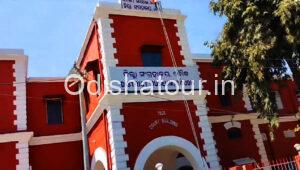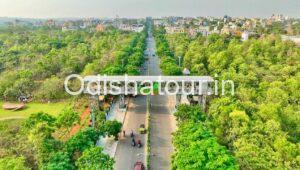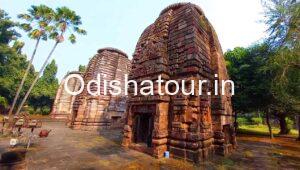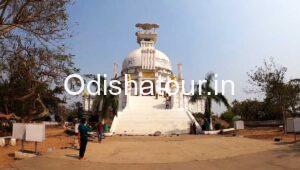State Museum is located in the city of Bhubaneswar and is a famous old museum of Odisha. The genesis of the Odisha State Museum goes back to the year l932, when two notable Historians, Prof. N.C. Banerjee and Prof. Ghanshyam Dash of Ravenshaw College, Cuttack started a collection of archaeological treasures from various places. The small Museum was then housed within the premises of the College. In l938, by a suitable order, the Government of Odisha transformed this nucleus into the Provincial Museum of Odisha and appointed a Committee of Management consisting of the Principal, the Head of the Department of History and three other Professors of the College.
Maintaining close contact with the general public and the Archaeological Department of the Government of India and other States, the Museum continued to grow. To popularize the cultural exhibits of the Museum, leaflets printed both in Odia and English were published in the Samaj, and the New Odisha and copies of the same were sent to officials and the public to create a sense of awareness about the significance of the Museum. As a result of this publicity, students and the general public started visiting the Museum in large numbers. The teachers of the History Department made sustained efforts to explain to them the cultural value of the Museum and its exhibits.
Initially, it was only an Archaeological Museum with a collection of sculptures, terracotta, numismatics, copper plates and specimens of fine arts. With the growing interest of the staff and people, the antiquities were reorganized in a systematic manner. Stone sculptures were rearranged in three groups related to their styles: such as Gandhara Art, North Indian Art, Odisha Art, and each group were subdivided into Buddhist, Jain and Brahnmanical images. Terracotta objects and coins were also organised according to the spots they were found in, their age and types.
With the shifting of the State Capital from Cuttack to Bhubaneswar in l947-48, the Provincial Museum was also shifted there. Slowly the collection of antiquities and specimens grew manifold and the necessity of having a special building for the purpose was felt. The foundation stone of this building was laid on 29th December, l957 by Dr Rajendra Prasad, the then President of the Indian Union. Dr H. K. Mahtab, the then Chief Minister of Odisha and a noted historian himself took the initiative for making the institution a full-fledged Museum. The construction of the building along with an administrative block, an auditorium (Kalamandap) and a Guest House was completed in l960 and in the same year, the Museum was shifted to the new building. The institution was renamed the Odisha State Museum in the same year. (Source)





















